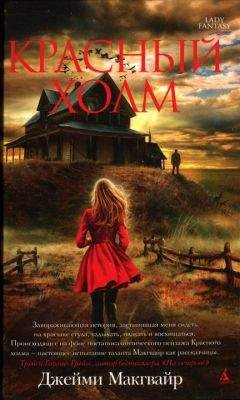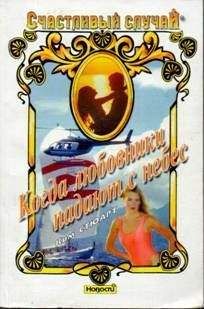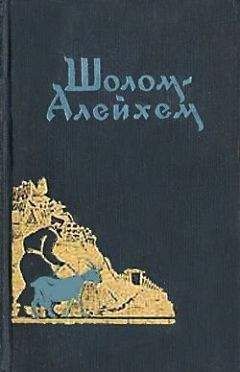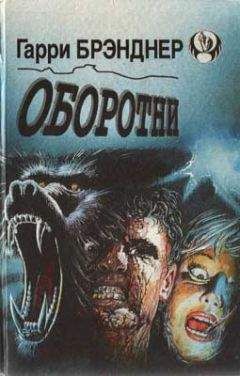Joe Haldeman - Forever Peace
I set the beer down and looked at the titles. Mostly novels and poetry. Unlike a lot of jacks and jills, I still read for pleasure, but I like to read things that are supposed to be true.
My first couple of years of college, I majored in history with a minor in physics, but then switched around. I used to think it was the degrees in physics that got me drafted. But most mechanics have the usual compulsory-ed degrees-gym, current events, communication skills.
You don't have to be that smart to lie in the cage and twitch.
Anyhow, I like to read history, and Amelia's library was lean in that subject. A few popular illustrated texts. Mostly twenty-first century, which I planned to read about when it was over.
I remembered she wanted me to read the Civil War novel The Red Badge of Courage, so I took it down and settled in. Two hours and two beers.
The differences between their fighting and ours were as profound as the difference between a bad accident and a bad dream.
Their armies were equally matched in weaponry; they both had a diffuse, confused command structure that essentially resulted in one huge mob being thrown against another, to flail away with primitive guns and knives and clubs until one mob ran away.
The confused protagonist, Henry, was too deeply involved to see this simple truth, but he reported it accurately.
I wonder what poor Henry would think about our kind of war. I wonder whether his era even knew the most accurate metaphor: exterminator. And I wondered what simple truth my involvement kept me from seeing.
JULIAN DIDN'T KNOW THAT the author of The Red Badge of Courage had had the advantage of not having been a part of the war he wrote about. It's harder to see a pattern when you're part of it.
That war had been relatively straightforward in terms of economic and ideological issues; Julian's was not. The enemy Ngumi comprised a loose alliance of dozens of "rebel" forces, fifty-four this year. In all enemy countries there was a legitimate government that cooperated with the Alliance, but it was no secret that few of those governments were supported by a majority of their constituents.
It was partly an economic war, the "haves" with their automation-driven economies versus the "have-nots," who were not born into automatic prosperity. It was partly a race war, the blacks and browns and some yellows versus the whites and some other yellows. Julian was uncomfortable on some level about that, but he didn't feel much of a bond with Africa. Too long ago, too far away, and they were too crazy.
And of course it was an ideological war for some – the defenders of democracy versus the rebel strong-arm charismatic leaders. Or the capitalist land-grabbers versus the protectors of the people, take your pick.
But it was not a war that was going to have a conclusive endgame, like Appomattox or Hiroshima. Either the slow erosion of the Alliance would make it collapse into chaos, or the Ngumi would be swatted down hard enough in all locations that they would become a collection of local crime problems rather than a somewhat unified military one.
The roots of it went back to the twentieth century and even beyond; many of the Ngumi traced their political parentage back to when white men first brought sailing ships and gunpowder to their lands. The Alliance dismissed that as so much jingoistic rhetoric, but there was logic to it.
The situation was complicated by the fact that in some countries the rebels were strongly linked to organized crime, as had happened in the Drug Wars that simmered early in the century. In some, there was nothing left but crime, organized or disorganized, but universal, from border to border. In some of those places, Alliance forces were the only vestige of law-often underappreciated, when there was no legal commerce and the population's choice was between a well-stocked black market and essentials-only charity from the Alliance.
Julian's Costa Rica was anomalous. The country had managed to stay out of the war early on, maintaining the neutrality that had kept it out of the twentieth century's cataclysms. But its geographic location between Panama, the only Alliance stronghold in Central America, and Nicaragua, the hemisphere's most powerful Ngumi nation, finally dragged it into the war. At first, most of the patriotic rebels spoke with a suspicious Ni-caraguan accent. But then there was a charismatic leader and an assassination-both engineered by Ngumi, the Alliance claimed-and before long the forests and fields were filled with young men, and some women, ready to risk their lives to protect their land against the cynical capitalists and their puppets. Against the huge bulletproof giants who stalked the jungle quiet as cats; who could level a town in minutes.
Julian considered himself a political realist. He didn't swallow the facile propaganda of his own side, but the other side was just plain doomed; their leaders should be making deals with the Alliance rather than annoying it. When they nuked Atlanta they hammered the last nail into their coffin.
If indeed Ngumi had done it. No rebel group claimed responsibility, and Nairobi said it was close to being able to prove that the bomb had come from the Alliance nuclear archives: they had sacrificed five million American lives to pave the way for total war, total annihilation.
But Julian wondered about the nature of the proof, that they could be "close" to it and not be able to say anything specific. He didn't rule out the possibility that there were people on his own side insane enough to blow up one of their own cities. But he did wonder how such a thing could be kept secret for long. A lot of people would have to be involved.
Of course that could be dealt with. People who would murder five million strangers could sacrifice a few dozen friends, a few hundred coconspirators.
And so it went around and around, as it had in everybody's thoughts in the months since Atlanta, Sao Paulo, and Mandelaville. Would some actual proof emerge? Would another city be snuffed out tomorrow; and then another one, in retaliation?
It was a good time for those who owned rural real estate. People who could move were finding country life appealing.
THE FIRST FEW DAYS I'm back are usually nice and intense. The homecoming mood energizes our love life, and all the time I'm not with her I'm deeply immersed in the Jupiter Project, catching up. But a lot depends on the day of the week I come back, because Friday is always a singularity. Friday is the night of the Saturday Night Special.
That's the name of a restaurant up in the Hidalgo part of town, more expensive than I would normally patronize, and more pretentious: the theme of the place is the romanticized California Gang Era-grease, graffiti, and grime, safely distant from the table linen. As far as I'm concerned, those people were no different from today's whackers and slicers – if anything, worse, since they didn't have to worry about the federal death penalty for using guns. The waiters come around in leather jackets and meticulously grease-stained T-shirts, black jeans, and high boots. They say the wine list is the best in Houston.
I'm the youngest of the Saturday Night Special crowd by at least ten years; the only one who's not a full-time intellectual. I'm "Blaze's boy"; I don't know which of them knew or suspected I literally was her boy. I came as her friend and coworker, and everybody seemed to accept that.
My primary value to the group was the novelty of being a mechanic. That was doubly interesting to them, because a senior member of the group, Marty Larrin, was one of the designers of the cyberlink that made jacking, and thus soldierboys, possible.
Marty had been responsible for designing the system's security. Once a jack was installed, it was failsafed at a molecular level, literally impossible to modify, even for the original manufacturers; even for researchers like Marty. The nanocircuitry inside would scramble itself within a fraction of a second if any part of the complex device was tampered with. Then it would take another round of invasive surgery, with a one-in-ten chance of death or uselessness, to take the scrambled jack out and install a new one.
Marty was about sixty, the front half of his head shaved bald in a generation-old style, the rest of his white hair long except for the shaved circle around his jack. He was conventionally handsome, still; regular leading-man features, and it was obvious from the way he treated Amelia that they had a past. I once asked her how long ago that had been, the only such question I've ever asked her. She thought for a moment and said, "I guess you were out of grade school."
The population of the Saturday Night Special crowd varies from week to week. Marty is almost always there, along with his traditional antagonist, Franklin Asher, a mathematician with a chair in the philosophy department. Their jocular sniping goes back to when they were graduate students together; Amelia's known him nearly as long as Marty.
Belda Magyar is usually there, an odd duck but obviously one of the inner circle. She sits and listens with a stern, disapproving look, nursing a single glass of wine. Once or twice a night she makes a hilarious remark, without changing expression. She's the oldest, over ninety, a professor emeritus in the art department. She claims to remember having met Richard Nixon, when she was very small. He was big and scary, and gave her a book of matches, no doubt a White House souvenir, which her mother took away.
I liked Reza Pak, a shy chemist in his early forties, the only one besides Amelia with whom I socialized outside the club. We met occasionally to shoot pool or play tennis. He never mentioned Amelia and I never mentioned the boyfriend who always drove up to fetch him, exactly on time.
Reza, who also lived on campus, usually gave me and Amelia a ride to the club, but this Friday he was already uptown, so we called a cab. (Like most people, Amelia doesn't own a car and I've never even driven, except in Basic Training, and then only jacked with someone who knew how.) We could bike to Hidalgo in daylight, but coming back after dark would be suicide.
It started raining at sundown anyhow, and by the time we got to the club it was a full-fledged thunderstorm, with tornado watch. The club had an awning, but the rain was almost horizontal; we got drenched between the cab and the door.
Reza and Belda were already there, at our usual table in the grease section. We talked them into moving to the Club Room, where a phony-but-warm fireplace crackled.
Another semi-regular, Ray Booker, came in while we were relocating, also drenched. Ray was an engineer who worked with Marty Larrin on soldierboy technology, and a serious 'grass musician who played banjo all over the state, summers.
"Julian, you should of seen the Tenth today." Ray had a little warboy streak in him. "Delayed replay of an amphibious assault on Punta Patuca. We came, we saw, we kicked butt." He handed his wet overcoat and hat to the wheelie that had followed him in. "Almost no casualties."
"What's 'almost'?" Amelia said.
"Well, they ran into a shatterfield." He sat down heavily. "Three units lost both legs. But we got them evac'ed before the scavengers could get to them. One psych, a girl on her second or third mission."
"Wait," I said. "They used a shatterfield inside a city?"
"They sure as hell did. Brought down a whole block of slums, urban renewal. Of course they said we did it."
"How many dead?"
"Must be hundreds." Ray shook his head. "That's what got the girl, maybe. She was in the middle of it, immoblilized with both her legs off. Fought the rescue crew; wanted them to evac the civilians. They had to turn her off to get her out of there."




